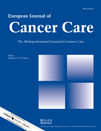Access to information and expectations of treatment decisions for prostate cancer patients – results of a European survey
Access to information and expectations of treatment decisions for prostate cancer patients – results of a European survey
We surveyed patients in France, Germany, Italy, Spain and Poland to examine information requirements and expectations of patients with prostate cancer. Patients were identified via their healthcare teams or via existing databases and interviewed by telephone, or in face-to-face interviews (Italy). Survey questions were either multiple choice or rank-based, and additional information was available to assist patient comprehension. Overall, 80% of patients received information about prostate cancer at diagnosis and 76% rated their physician as the most useful information source. However, around a third of French and German patients did not receive any information about their condition at diagnosis, compared with 8%, 12% and 10% of Spanish, Italian and Polish patients, respectively. Most patients rated the information they received as ‘very informative’, but there were regional variations, with German patients being the least satisfied with the quality of information received. Despite receiving the least amount of information at diagnosis, more patients from France and Germany preferred to be involved in treatment decisions than patients from Spain, Italy and Poland. Results from this survey highlight important gaps in information provision for patients with prostate cancer in terms of information supplied and patient expectations regarding treatment decisions.




